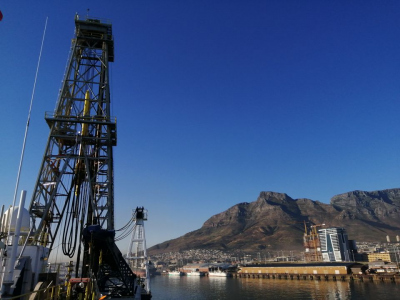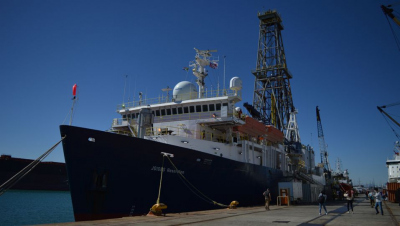- Home
- Discover
- Archive News
- News 2022
- A look into the past
A look into the past
From the University of Bremen, Leonardo Tamborrino (MARUM – Center for Marine Environmental Sciences, IODP Expedition 393 from April to June) and Dr. Elmar Albers (Fachbereich 5 – Geosciences, IODP Expedition 393 from June to August) are participating.
Tamborrino will study sediment samples to paleoceanographically reconstruct the so-called intermediate water masses in the South Atlantic, which have a key role in the Atlantic Meridional Overturning Circulation (AMOC) and likely on global paleoclimates. Albers, as a petrologist, will focus after the cruise on reconstructing hydrothermal alteration of the basaltic crust. This includes element transfer between the Earth's crust and the overlying ocean as well as the detection of microbial biomarkers as remnants of microbial life.
A total of 52 international scientists are taking part in the expedition. They will study hydrothermal interactions between the cooling ocean crust and the ocean, microbial communities living deep below the oceanfloor, and climate change and ocean circulation patterns in the Atlantic Ocean using sediment deposits.
During IODP Expeditions 390 and 393 ("South Atlantic Transect"), deep cores will be drilled at six locations containing ocean crust that is 7, 15, 31, 49, and 63 million years old. The samples will allow determination of the physical, chemical, and biological changes in the ocean crust as it ages, and also how these changes both record and influence conditions in the ocean.
Preparations for the drilling were made during two other expeditions in 2020 and 2021. These included drilling, casing of for the wells, and the installation of so-called re-entry cones for the drill pipe.
Contact:
Leonardo Tamborrino
Email: [Bitte aktivieren Sie Javascript]
Dr. Elmar Albers
Email: [Bitte aktivieren Sie Javascript]




